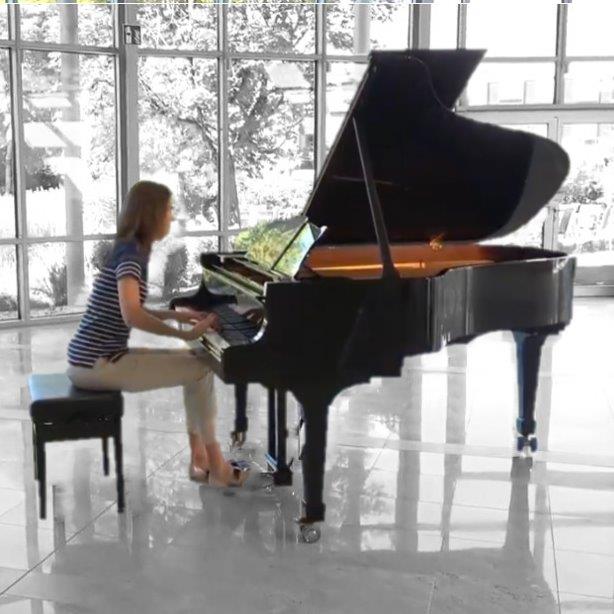
You’ve recently started offering “proof-playing” services to composers. What prompted you to do this, and how may composers reach you if they’re interested in hiring you to do this for them?
“Many years of experience of communication with composers show that it is helpful for all new creations to get feedback from someone who’s opinion you value before the publication/release. In literature, it goes without saying that you let other people read and review your work and that you are looking forward to some suggestions. I work as a creativity expert with business companies and see that it is also a standard practice to use a design-thinking method. The philosophy behind this is that the feedback from users is equally important as the content creation. Success often depends on small things and therefore, it makes sense to ask for feedback before the final release. My experience is that composers appreciate this feedback and it gives them additional motivation.
I chose the fiverr platform for my feedback service. I offer three different levels of feedback and audio recording of the first reading. I have developed the questionnaire for the feedback to make it more detailed, structured and constructive. Technical aspects, notation, interpretation issues, “playablity”, fingerings, and surely the aspects mentioned by a composer will be addressed in my feedback. ”
https://www.fiverr.com/annasutyagina/proofplaying-of-new-piano-compositions
In your experience, what do you think are the biggest editing and proofreading mistakes composers make in their compositions?
” I think a fresh look into the music score can bring new ideas. Some scores are written for the level “intermediate beginners” but there is one particular bar with the “extra difficult” level, in this case, you could ask composer – is it really necessary to have it? Some notations can be simplified, as pianists do not read fast in the very high and very low octaves. Some scores would profit with some fingering for the needed effect. Sometimes composers need to put more markings to be more precise. Different metronome markings, etc, different tempo indication to express the idea. There are always some creative ideas that can bring a final touch to a composition. ”
How do you think composers can benefit from your careful reading of their scores?
Music is about leaving the audience with an impression, and the first “audience” a composer has beside the family or a pet, is usually a performer. The recorded reading of the score will allow composers to be a listener too, “the audience” for their own composition, take a step back and listen to the music with a new approach as if it were not their own creation. Read the full interview here: http://www.nodeadguys.com/2020/06/creativity-has-no-limits-interview-with.html